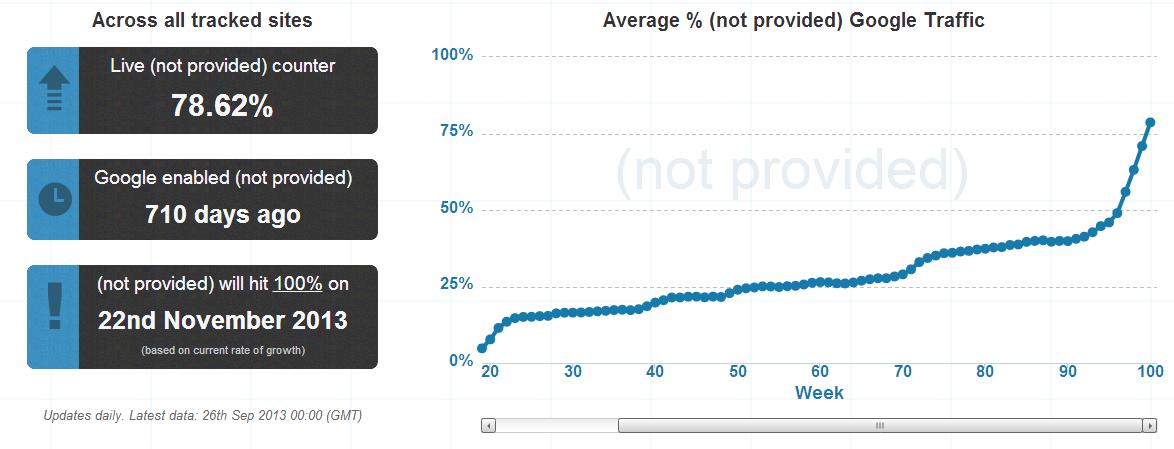On September 6, Craig Timberg of the Washington Post wrote the article "Google encrypts data amid backlash against NSA spying." In it, he reported that Google was working really hard to complete "end-to-end" encryption using "very strong" technology. This is likely a reaction to Edward Snowden's leak of information about the NSA's PRISM program. The project was months ahead of schedule. On its surface, this news didn't appear to impact the search engine optimization (SEO) industry. However, professionals in the industry knew that when Google uses encryption technology keyword data is obfuscated.
This past week has contained a couple of heart-skipping declarations for the SEO industry. The most recent was Google's announcement of its latest algorithm update -- Hummingbird.
Algorithm updates
Historically, major algorithm updates have included Panda (estimated to affect approximately 11.8 percent of search queries in English, February 2011) and Penguin (estimated to affect approximately 3.1 percent of search queries in English, April 2012). According to Danny Sullivan of Search Engine Land, the Hummingbird algorithm update affects approximately 90 percent of all search queries worldwide now.
This update increases Google's use of its Knowledge Graph, which aims to comprehend relationships between concepts instead of matching keywords in documents. It strives to deliver results for complex queries that don't necessarily have simple answers. It's attempting to index knowledge rather than documents.
Hummingbird also allows the search engine to understand the relationship between subsequent queries. For example, if someone does a search for the "Great Wall of China" and then follows that search up with "How long is the Great Wall of China," the search engine will no longer view each query separately; the algorithm update understands that the queries share common intent.
Keyword "not provided"
In October of 2011, Google rolled out its first SSL encryption. It meant that if someone was logged into a Google product when they conducted a search, the keyword phase they used to make the query would not be reported to the webmaster of the website visited. At the time, Google claimed it would impact less than 10 percent of queries. Analytics software reports these visits as "keyword 'not provided.'"
Since then, Google has added encryption on searches from Firefox, Safari, iOS devices and others which have led to a steady increase in unknown keyword phrases.
As mentioned above, Google has indicated that it's moving to full encryption. That means that, very soon, 100 percent of all search queries will be unknown to webmasters. It's trending to hit 100 percent on November 22nd of 2013.

The Aftermath
When an algorithm update impacts 90 percent of search queries, it's likely that many of the tactics the SEO industry has been using will have less of an impact than they once did. The industry has never faced an update that impacted such a large number of search queries. SEO practitioners have optimized websites for matching keywords in documents and not the Knowledge Graph.
With 100 percent of keywords not provided, the industry has no direct way to measure the return on investment it provides to clients. Moz CEO, Rand Fishkin, doesn't believe SEO will die; instead, he believes this is the first existential threat to SEO as an industry. If SEO agencies and in-house search departments can't prove or measure the results of their work, they're likely to be contracted and resourced less and less over time.
Is this Edward Snowden's fault? It's true that his revelations on the breadth of the NSA surveillance program put new pressure on Google to protect the privacy of its users. However, the growth of "not provided" keywords has been trending northward since its inception in 2011.
It's likely that the 100 percent ceiling would have been hit whether Snowden leaked classified information or not. There's no question, though, that his actions hastened Google's attempt to encrypt its entire network. In addition, the release of Hummingbird has nothing to do with any surveillance program--it's simply technological innovation.
If the SEO industry declines or disappears, it's not Edward Snowden's fault -- it's Google protecting the privacy of its users and getting smarter at understanding the human thought that goes into submitting search queries.
Image credit: notprovidedcount.com
